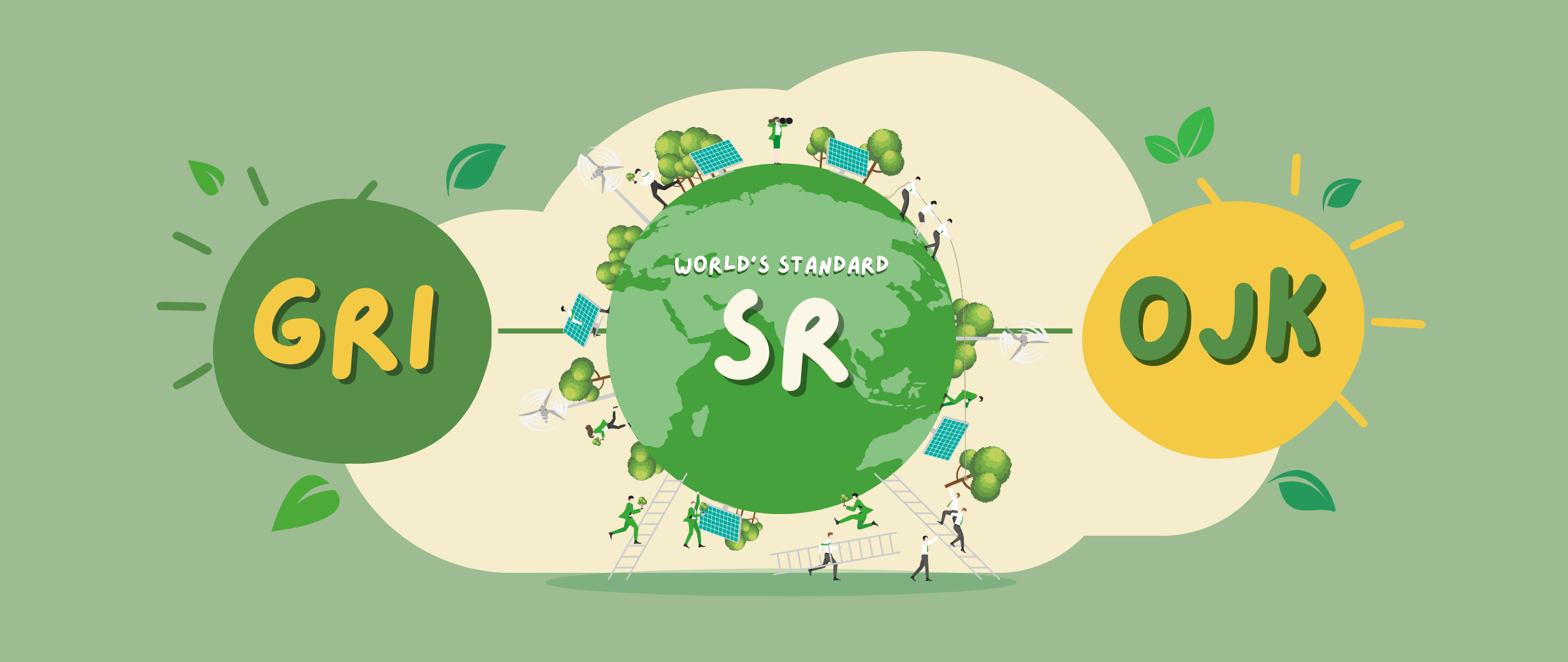
Creating Effective Sustainability Reports: Aligning with GRI and POJK
In the evolving landscape of corporate sustainability reporting, companies in Indonesia face the dual challenge of meeting international best practices while complying with local regulatory requirements. A well-crafted sustainability report should adhere to globally recognized standards such as the Global Reporting Initiative (GRI) while also fulfilling the mandates set by the Otoritas Jasa Keuangan (OJK), Indonesia’s Financial Services Authority. This approach ensures that reports are both internationally comparable and locally compliant.
The Global Reporting Initiative (GRI) Standards have emerged as the world’s most widely adopted framework for sustainability reporting. These standards provide a comprehensive set of guidelines for reporting on various economic, environmental, and social impacts. They offer a modular structure that allows organizations to focus on material topics relevant to their operations and stakeholders.
A good sustainability report aligned with GRI Standards should begin with the GRI 101: Foundation, which outlines the reporting principles such as stakeholder inclusiveness, sustainability context, materiality, and completeness. It should then use GRI 102: General Disclosures to provide context about the organization and its reporting practices. The report should also include relevant topic-specific standards (GRI 200, 300, and 400 series) based on the company’s material issues.
Simultaneously, Indonesian companies must navigate the regulatory landscape shaped by OJK. The OJK has been proactive in promoting sustainable finance and corporate sustainability reporting. In 2017, OJK issued Regulation No. 51/POJK.03/2017 on the Implementation of Sustainable Finance for Financial Services Institutions, Issuers, and Public Companies. This regulation mandates sustainability reporting for various entities in the financial sector and publicly listed companies.
The report should detail how the company implements these principles in its operations and decision-making processes. It should also include specific disclosures required by OJK, such as information on sustainable products and services, internal capacity building related to sustainability, and the company’s efforts in developing priority economic sectors.
One of the challenges in creating a sustainability report that meets both GRI and OJK requirements is harmonizing the different disclosure requirements. A well-structured report should use a mapping or cross-referencing approach to show how GRI disclosures align with OJK requirements. This not only ensures compliance but also demonstrates the company’s commitment to comprehensive and transparent reporting.
For instance, while discussing environmental impacts as per GRI 300 series standards, the report can simultaneously address OJK’s requirements on environmental risk management and sustainable business practices. Similarly, governance disclosures can be structured to meet both GRI 102 and OJK’s governance principle requirements.
Moreover, OJK encourages companies to consider the Sustainable Development Goals (SDGs) in their sustainability strategies and reporting. A good report should articulate how the company’s sustainability initiatives contribute to relevant SDGs, aligning this with both GRI disclosures and OJK’s sustainable finance principles.
It’s also crucial for the report to reflect the unique Indonesian context. This might involve discussing how the company addresses specific sustainability challenges relevant to Indonesia, such as biodiversity conservation in tropical ecosystems, community development in remote areas, or supporting the government’s renewable energy targets.
The assurance of sustainability reports is another area where international best practices and local regulations intersect. While GRI recommends external assurance to enhance credibility, OJK regulations do not mandate it for all companies. However, a good sustainability report should consider including third-party assurance, especially for material disclosures, to boost stakeholder confidence.
In conclusion, creating a good sustainability report in the Indonesian context requires a careful balance between adhering to GRI Standards and complying with OJK regulations. This dual alignment not only ensures regulatory compliance but also elevates the report’s credibility on the international stage. As sustainability reporting continues to evolve, companies that successfully navigate these requirements will be better positioned to meet the growing expectations of both local and global stakeholders, contributing to Indonesia’s sustainable development while participating in the global sustainability dialogue.
